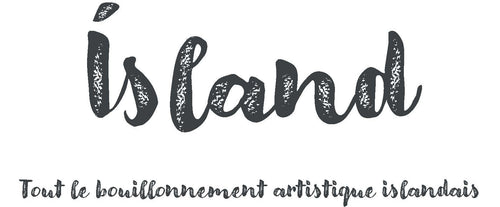Podcast The Musical Series , France culture, November 19, 2023, 59 minutes
Today, we're heading to Iceland for the Boréales festival. From rock to pop to rap, the Icelandic sound is sweeping the world.
A music of one's own
Iceland will be essentially marked by Anglo-Saxon influence until the 70s despite an extremely important folk vocal tradition. But the island will also be influenced by Denmark since it is there that most of the Icelandic elite will be musically trained. From the 70s and 80s, the country is finally musically shaken by the punk movement and it is mainly the label Smekkleysa which means "bad taste" in Icelandic which will give momentum and vitality to this emerging music.
Sunna Gunnlaugs, one of the country's greatest jazz figures
Sunna Gunnlaugs is one of the jazz figures who will make her mark in Iceland. She is considered one of the best pianists today and will also perform in France at the Boréal Festival . Sunna Gunnlaugs lived on a very small peninsula, not far from Reykhavik and started playing the organ as a child even though she didn't like the instrument. She discovered Bill Evans on the radio, Keith Jarrett and then Scandinavians such as Bobo Stenson and Jan Garbarek.
Sigur Ros, an enigmatic group
Sigur Ros is an enigmatic and distinctly Icelandic band that made its mark in the 90s despite a first album that wasn't very successful. It was called "Von," which means "hope" in Icelandic, and a concept would later emerge from it. Volenska or Volondais, a mixture of hope and Iceland, is the language that isn't one and which appears on all of the band's songs when they aren't purely instrumental. The band would explode in the 2000s thanks to the American band Radiohead who spotted them. Sigur Ros would leave its mark on the entire world with its second album.
Musical programming and archives
- Ólafur Arnalds , Near light
- Archive : Bjork talks about his relationship with Iceland, walking and singing, in the show Totemic , France Inter, 2023
- Björk , Atopos
- Archive : Ásmundur Jónssonco founder of the label Smekkleysa on the emergence of punk and traditional Icelandic music, in the program Décibels, France culture, 2006
- Purrkur Pillnikk , Gluggagaegir
- The Sugarcubes , Birthday
- Björk & Trio Gudmundar Ingolfssonar, Balla Simamaer
- Sunna Gunnlaugs, Unspoken
- Sigur Ros, Avalon
- Kjartan and Orri, Sigur Ros members interviewed on Icelandic television in 2000
- Sigur Ros, Agaetis byrjun
- Archive : Georg Holm, bassist of "Sigur Ros" and Emiliana Torrini discuss the “magic” of Iceland in Vlam: Long live music, FRANCE 5, 12/19/2001
- Emiliana Torrini, Jungle Drum
- Arny Margret and Junius Meyvant, Spring
- Reykjavik Kurdistan , Drusla
- GusGus, Unfinished Symphony
